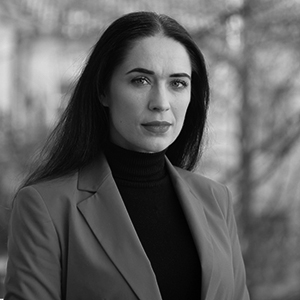Hanna Shelest, PhD, Security Studies Program Director at the Foreign Policy Council “Ukrainian Prism” for Hungarian Europe Society
Security is in flux, as well as challenges that are dominating in a certain period of time. Central Europe is not
an exception, it has passed the same road from the hard security priority during the Cold War time, to the
significant concentration on the soft security challenges in the 1990s-2000s, to the present state when hard
security and soft security challenges are becoming so interconnected that one cannot separate them. The
21st century is when many soft security challenges, like cyber, information, and energy, have been gradually
moving to the camp of hard security. While the security concerns in Central Europe raised, the role of the
big powers as a containment forcer or protectors has not.
However, not only security is transforming, but also those actors involved both in its jeopardizing and in its
guaranteeing. Central European states of the Czech Republic, Hungary, Poland, and Slovakia are currently a
good study ground to understand the security challenges, who are the actors influencing the security, and
the role of the so-called big powers in this process.



